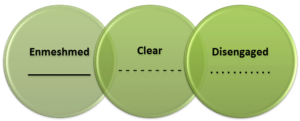 “Relationships are like birds, if you hold tightly, they die; if you hold loosely, they fly, but if you hold with care, they remain with you forever.”
“Relationships are like birds, if you hold tightly, they die; if you hold loosely, they fly, but if you hold with care, they remain with you forever.”
‘Boundaries’ can sound like a heavy word in the context of relationships. It can be difficult to see how setting boundaries can improve any relationship. After all, isn’t it necessary to do away with boundaries when entering relationships? Isn’t a relationship stronger the fewer boundaries it has?
This is a common misconception and also a dangerous one. It can be the cause of discomfort and tension in many relationships especially when we believe that the perfect relationship will have ‘no boundaries’ at all.
What are healthy boundaries and why are they important?
Boundaries are the choices we make about acceptable ways for others to behave around us. They are guidelines that limit the people around us from stepping over. They also include our response if they do step over our expressed boundaries.
Boundaries are essential as they shield us in situations where others may try to manipulate, control, or exploit us. They also help us retain our individuality and create a separate space for our personal feelings and thoughts.
Boundaries are limits, but they are healthy limits. They are a way for us to protect ourselves and respect our identity and wishes. They are NOT disrespectful or selfish; rather they will improve not just your own self-worth, but also improve the quality of your relationships overtime.
So then, is it ideal to have very strict boundaries? ‘You live your life and I live mine’. Should you be independent to the point where you don’t find it necessary to communicate or discuss anything with others? Is it ideal for us that we all decide to ‘just do my own thing’, without the need for discussion or clarification?
“An intimate relationship is one in which neither party silences, sacrifices, or betrays the self and each party expresses strength and vulnerability, weakness and competence in a balanced way.” ~Harriet Lerner
Balance is key even when establishing or adjusting boundaries. While stepping over the line is harmful, maintaining a far distance from the line is also damaging to relationships
The continuum of boundaries
While talking about interpersonal boundaries, relationships lie on a Continuum. While on one end of the spectrum are relationships where the boundaries are just too rigid, at the other extreme are families where boundaries are too few and flexible.

Enmeshed relationships
Enmeshment is something we have all witnessed in our traditional Indian families. Such a relationship has fewer boundaries and more interdependence. Autonomy of any individual in an enmeshed relationship sacrifices. While they support each other, the support can lead to dependence. Such relationships witness conflicts arising from the interference of family members.
Disengaged relationships
Disengaged relationships are those in which each individual retains their independence to the point of being isolated from each other. While they retain their autonomy in decision making, they lose out on receiving affection and support. It takes a major stressor for them to seek and give support and assistance to each other.
Tips for setting boundaries
Before you set a boundary, it is important to be prepared to face challenges along the way. Your loved one or acquaintance may react in a way that is unpleasant and discourages you from asserting your space.
Sometime the other person may continue to try and control or manipulate you. They may try to make you feel guilty, may get angry at you or blame you for the change. You have to be ready to face it and get through without going back on your decision to establish the boundary. Do not send mixed messages by apologizing or delaying the conversation.
Steps in boundary-making
While setting boundaries, here are the steps you can follow:
- Identify the need to set a boundary with someone
- State it to them clearly, firmly and respectfully
- Use as few words as possible
- Do not justify, get angry or apologize
Samvedna Senior Care was set up in 2013 with the aim of providing services for active ageing and dementia care in Delhi NCR.
We set up the Samvedna Senior Care Foundation in December 2016 to promote active ageing through senior centres, and events and workshops on subjects like learning smartphones, interpersonal relationships and more. We bring together dementia caregivers through a support group and have a programme for seniors with early dementia, depression or other minor cognitive impairments.
All our counsellors are psychologists or gerontologists.
—
Great Times Club, which is a part of the Samvedna Senior Care Foundation, is our social and recreational club in Sector 57, Gurgaon, for members 55 years and above.Its a place where members come to get fit, meet like minded people and share their life experiences and give back to the community.
Activities at the club include fitness exercises, group meditation, mind stimulation, tambola, dancing, book reviews, movies, community outreach, and talks on health management. The club has a library, computer room, visits by physiotherapists and doctors, access to board games and cards, a fully functional pantry with healthy and affordable snacks and tea and coffee on the house.
There are special discounts for group memberships. The club is open Monday-Friday, 11am to 2pm.There are special classes for yoga, smart phones, computers, spoken english, dance, music and painting. Call Great Times Club at 9818421446, 0124-4229659.
Know more here – Great Times Club
17
